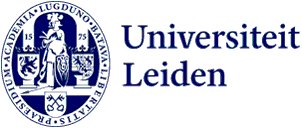
Animal-friendly and effective: Leiden students develop nanobodies using yeast
Yeast, alpacas, and antibodies. They may seem unrelated, but within the project of the Leiden iGEM students, they come together perfectly. For the international synthetic biology competition iGEM, the team is working on an innovative method to produce nanobodies—a special form of antibodies—using brewer’s yeast. Their aim is to develop a more animal-friendly and effective approach for medical applications.
Speaking are team leader Nienke Ijspeert and Outreach & Communication Manager Floortje van Ankeren.

You want to produce animal-friendly nanobodies. What exactly are nanobodies?
Nienke: ‘When you get sick, your body produces antibodies to fight the pathogens. These antibodies can also be administered as medicine when the natural defense isn’t sufficient.’
Floortje: ‘Doctors could also use nanobodies for this purpose: the smallest and most effective part of an antibody. You isolate the section of an antibody that binds to the pathogen. Nanobodies are more compact and flexible, which offers several advantages. For example, they can reach areas in the body where larger antibodies cannot.’
Nienke: ‘Additionally, your body filters them out of the blood more quickly. This means they remain in the body for a shorter time, reducing the risk of side effects.’
And what do llamas and alpacas have to do with this?
Nienke: ‘Typically, these nanobodies are produced by injecting animals with pathogens. This can only be done using alpacas or llamas, because they have a unique form of antibodies. We use the animal’s immune system to create nanobodies, which are then tested in the lab for specific pathogens. With our project, we aim to develop a way to produce nanobodies without the need for animals.’
And how do you plan to do this?
Floortje: ‘We will do this using yeast. With yeast, we can produce various antibodies and test their effectiveness against different pathogens.’
Nienke: ‘You can modify the DNA of yeast cells by adding small pieces of DNA code, enabling the cells to produce specific proteins, such as nanobodies. By incorporating a wide variety of nanobody recipes into the DNA of yeast cells, we create a living library of different yeast cells capable of producing various nanobodies.’

Floortje: ‘We also add a code to the DNA that ensures the produced antibodies remain attached to a kind of ‘antenna’ on the surface of the yeast cell. This is important because we ultimately want to identify which nanobodies come from which cell. We then introduce a pathogen for which we want to find a nanobody. Yeast cells that produce the correct nanobodies, will bind to the pathogen.’
Nienke: ‘Of course, you want to know exactly which nanobodies are effective. We’ve devised a clever trick for that: we add fluorescent proteins that bind to nanobodies. However, these can only bind to nanobodies that aren’t already bound to the pathogens. In other words, the nanobodies that are ineffective will light up.’
Floortje: ‘After that, we select the effective nanobodies, which you could further experiment with to see how well they work and which nanobodies give the best results. Those could potentially be produced as medicine.’
Instead of taking a summer break, you spent the summer working full-time in the lab. What makes iGEM so fun?
Floortje: ‘What makes iGEM so unique is that we developed everything ourselves from the start. From coming up with the idea and conducting lab work to organising outreach and writing a website. But also applying for materials, setting up protocols, and securing funding. There's really no other opportunity in your studies where you can build a project from scratch like this.’
Nienke: ‘We're all very interested in this kind of research and want to gain more experience. One team member wants to learn more about entrepreneurship, while another does it to meet new people. For bachelor’s students, it’s a great chance to get hands-on lab experience. And, of course, we’re all really looking forward to the big final in Paris.’
Contribute to the crowdfunding
Help our students successfully complete this project
To the crowdfundingThe ‘Grand Jamboree’ in Paris is quite an event, right?
Floortje: ‘Absolutely. Hundreds of teams from around the world present their projects to an international jury. There are different categories, and the Leiden team is competing in the ‘foundational advance’ category. The jury will nominate ten teams per level (high school, undergraduate, and overgraduate), and the top two will present their projects on the big stage in front of all the teams.’
Nienke: ‘The pressure is on because Leiden came second last year and even won in 2020. We hope to make it to the top ten nominees and win a few special prizes, like for the best website or best entrepreneurship. But even beyond that, it's already been an amazing and valuable experience.’
Team iGEM Leiden
The Leiden iGEM team consists of 10 bachelor’s and master’s students, mostly with a background in biology or biomedical sciences. Each team member has a specific role, which they’ve divided among themselves. The official title of the project is A.L.P.A.C.A., which stands for ‘Affordable Library-based Pipeline for Accelerated Creation of Antibodies’.
All team members:
- Nienke Ijspeert – Team Leader - Master's student in Molecular, Cellular, and Organismal Biology
- Alexander Nowak – Science Manager – Bachelor’s student Biomedical Sciences
- Stijn Tieleman – Dry Lab Specialist – Master’s student Molecular, Cellular and Organismal Biology
- Angelita Feresia Baba – Wet Lab Specialist - Master’s student Biomedical Science
- Anusha Ganeshan – Human Practice’s Manager - Master’s student Molecular Genetics and Biotechnology
- Sofia Eremchuk – Funding & Entrepreneurship Specialist – Master’s student Life Science and Technology
- Floortje van Ankeren – Outreach & Communications Manager – Bachelor’s student Biomedical Sciences
- James Driessen – Wiki Manager – Bachelor’s student Biology
- Enrico Picotti – Design Specialist – Master’s student Molecular Science and Technology
- Simon Verdel – Programming & Coding Specialist – Master’s student Biology
